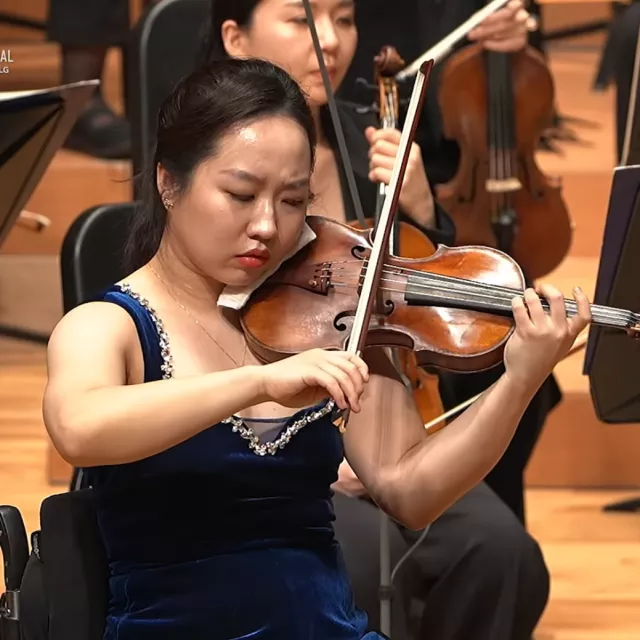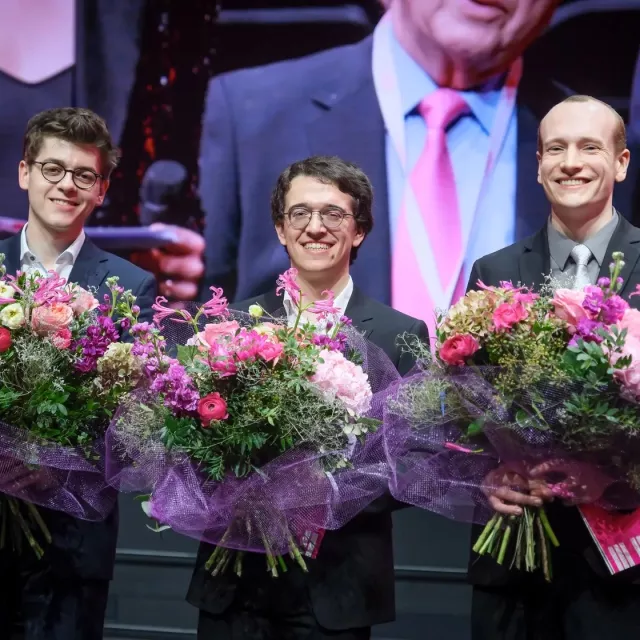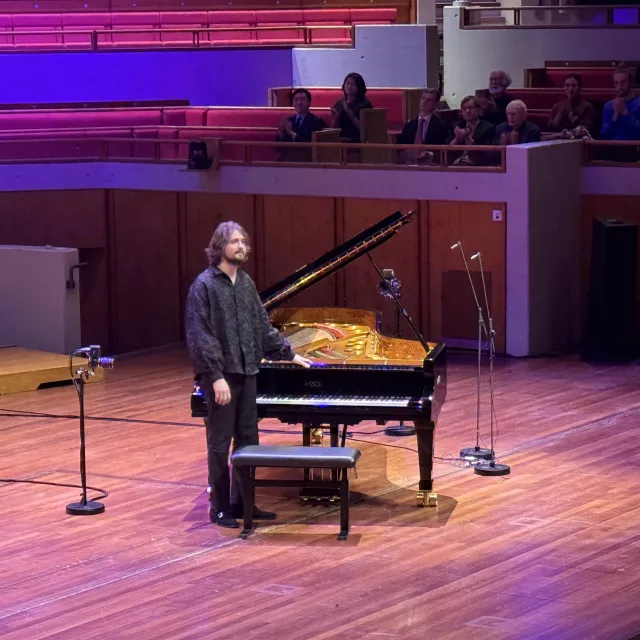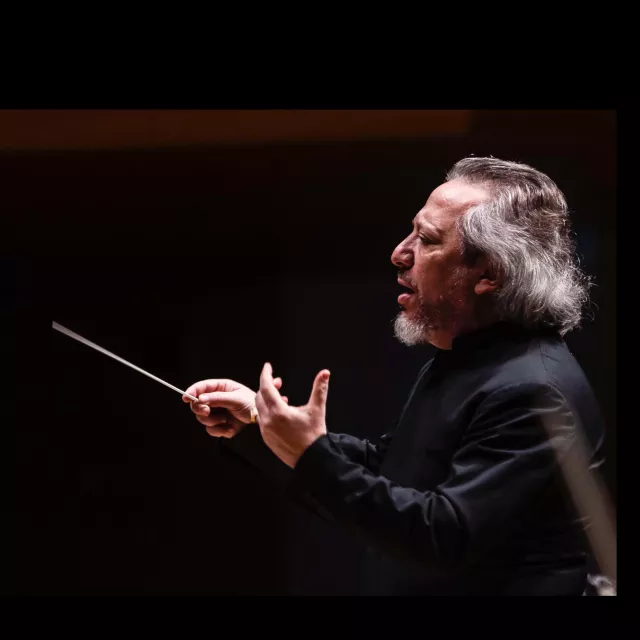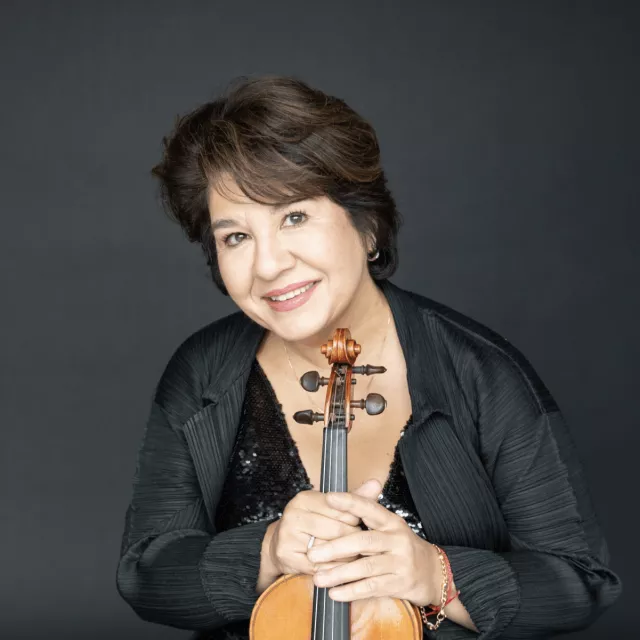Bem Vindo a Lisboa
Having left the IVC in ´s-Hertogenbosch, Ivan van Kalmthout talks about his career, voice competitions, and the Federation
WFIMC: Let´s talk a little about your background and how you found your way to the World Federation!
Ivan van Kalmthout: As a kid, I played the violin, but I always knew that wasn´t going to get me any money in any way (laughs)…. It never seemed to me a really nice life to be standing in a room with your instrument for days on end. But then, I got to know opera- mostly through Maria Callas- so, no surprises there. I thought that it would be really nice to work at an opera house. Still, I knew I would never want to be on stage.
Why did you say “no surprises there”?
Well, many of my colleagues were inspired by a great artist in their choice of line of work.
You mean, you listened to her recordings and decided to work in an opera house?
I already knew a little Mozart and Beethoven. When I first got to listen to a complete Wagner, it was a shock. I really liked the highlights but did not know the whole evening would last 5 hours.. The polonaise in D by Wieniawsky, I really liked and it was performed in a television recital in which I heard opera for the first time. But it was not until I heard Maria Callas before I became really fascinated. Her performances, her life, her backstage stories… I just found it quite fascinating and thought “this must be a fun place to work!”. When I started studying, musicology and theatre science courses had just started but they did not feel like somewhere I would want to be and and I decided to go to business school instead. I told them right away that it was my intention to work at an opera house, I wanted to do management, and I was interested in leading positions. They were quite surprised: they had never met this kind of student before, and probably never after, either. But the lady who conducted my interview did not forget, and a few years later, when a job with Pieter Alferink and his Artists Management opened up, she helped me get it. Later, I went to the opera in Antwerp as the youngest assistant at the artistic planning department. The next step was the Staatsoper in Hamburg and then the Liceu in Barcelona, followed by the Staatsoper im Schillertheater, where I worked with Daniel Barenboim and Jürgen Flimm. For three years I was back in the repertory theatre system with an enormous amount of productions and a very interesting opera studio (like in Hamburg), where I was allowed to work with new young talents in the first year. The concert programme of the Staatskapelle was also a parade of musical highlights with first-class instrumentalists.
But then you went back to Barcelona?
Yes. When the opportunity came to temporarily fill in for Joan Matabosch in Barcelona after Gerard Mortier had to leave Madrid prematurely due to illness, I gladly returned to the theatre and the city where I had had such a good time. I was able to successfully whip into shape a very difficult year (both organisationally and artistically) for the Liceu. It was a privilege to be there for another year but it was also clear that the direction that the Liceu was headed to was a completely different one from that of the ten golden years before my Berlin time.
But then, IVC “happened”?
My husband got a job in Amsterdam, so I moved back to the Netherlands – just at the time when Annett was leaving the IVC in ´s-Hertogenbosch.
This was in 2017?
Yes. It was a really nice job for six years, and I was not really planning to leave, but one day a friend sent this WhatsApp saying: there is this job in Portugal, would it not be interesting for you? I hesitated. Life is good here in Den Bosch, it´s not too stressful, there are lots of holidays in the Netherlands…

But you decided to move.
… and I decided to go. It´s very different, but it´s nice. I am enjoying it, and it is really the career move I wanted to make.
When did you first get in contact with the Federation?
Annett introduced the IVC to the federation already before I came, but I also was in close contact with Arthur van der Drift and Rob Hilberink. We had been denied funding by the Dutch government, and we worked together with the Dutch Harp Festival to push back against the decision to not fund any classical music competition in 2021-2024 anymore that had been subsidised before. We were successful, and this is significant because in order to reinstate and decide on their funding, they actually used criteria from the World Federation. So I think it´s fair to say that the Federation has helped us shape the IVC further.
Did you already attend the General Assembly in ´s-Hertogenbosch?
No, that was before my time- it was in 2014, when IVC celebrated its 60th anniversary. I only joined in 2017.
Did you have experience with the competition before?
Actually, yes, I was a jury member twice- once in 2004, and once in 2010.
One thing I´d like to say is that without Annett Andriesen, the IVC would never resurfaced as a major international competition. I don´t know the whole trajectory, and of course the IVC had a certain standing, but I think it would not have survived without her- she saved the competition. She introduced the three D´s: “discover, develop, deliver”. And then with me, we could expand on the existing network and get it into a broader international context, we worked hard on the “develop” part, added many new features, online masterclasses etc- a direction that will now continue with Andrew Watts. He is the first non-Dutch director of the competition and I think that makes it truly international as well. I am happy to see an outward looking policy continued with him !
Recently, voice competitions have been discussing whether to keep offering the “Lied Duo” category or abandon it in favour of the more popular opera genre. What are your thoughts on that?
Sometimes we have winners that are so convincing, they really have something to say, so you would not ask this question. The problem is, however… take me: I am Dutch and am blessed with a facility for languages. I listen to a Lied recital, and I understand a lot. But that is me. For people who cannot understand any of it, such a recital can turn out to be a really tough evening. Of course, you can now do it with subtitles and all, but then your mind is constantly with the titles- I find that difficult. When it´s really well done, a Lied recital can be an incredibly rich experience, but if it´s done only half way good, it becomes very tiring. And there are other issues: the values and wisdom, the virtues of the text of a Schubert lied are hard to convey and are not exactly very popular with young people. If you grow up with this music, it´s a different story, but otherwise it´s not easy to communicate. The way artists stand on stage, the way they dress, the way they behave, I understand why some people are put off by it. And its visually not very enticing.
I think we have to be realistic with what people can achieve. If organisations like deSingel in Antwerp are not even programming Lied recitals anymore because they won´t sell, we really have to consider whether we want to promote this genre and give awards to people who later find themselves with nowhere to go.
Back to the Federation. Any memories from your first General Assembly?
My first General Assembly was a bit…. I don´t know how to put it. I was completely new in Glasgow. But I very much liked the second one I did- in Reggio Emilia. And of course, Japan was very special (except for Green tea which I didn’t particularly like as you can see in the photograph).

But what I found wonderful is the warm and friendly atmosphere. People are really passionate and enthusiastic about what they do, and I learned a lot at these meetings. Of course, I played the violin, I am quite into singing and opera, so I can relate to a lot of people. There are so many piano competitions, but then there are also the other disciplines- percussion, woodwinds. Smaller competitions, niche competitions that you didn´t think much about before. And then you meet the people who represent them, and for them of course their instruments, their events are a really big thing and really important, something very close to their heart. I find that very moving!
And now you are moving to Lisbon. Are you learning to speak Portuguese?
I started working in Portuguese from day one. I have a language course, a book that is actually in German, and I just started learning by myself. I have no classes.
That’s fantastic. And it works well?
I have already spoken ten minutes of Portuguese with the President of Portugal.
Very impressive. And you have found a place to live? Some historical palace maybe?
We now still live in a furnished apartment, but in November, we will move into a fantastic new place on the sixth floor, with a view of the Tejo River, the bridge and the statue of Christ. It´s wonderful.
I should also mention the opera house- it was opened in 1793, when Queen Maria the Pious was still sane. Most historical opera houses have been destroyed in wars, have burnt down or have been renovated beyond recognition, but this one is still original. When you walk in, you see what people saw when they came in 1793- it´s really quite impressive.
©WFIMC 2023/FR


